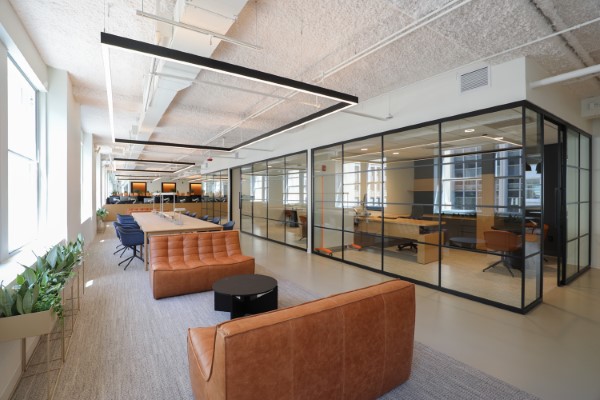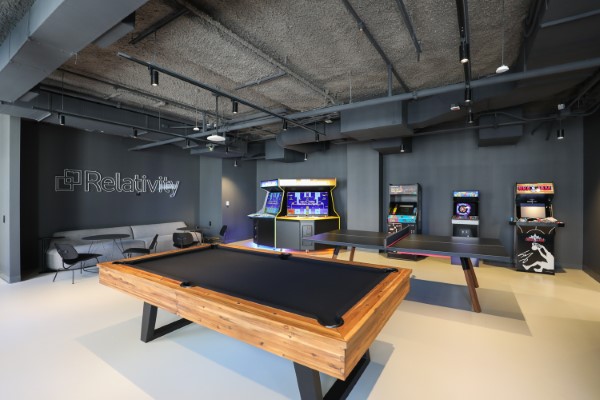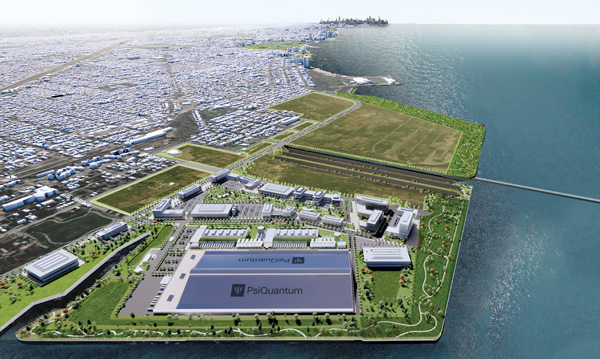On July 25, Palo Alto, California–based PsiQuantum, a maker of quantum computers, announced plans to build a 300,000-sq.-ft. Quantum Computer Operations Center at a former U.S. Steel site on the south side of Chicago. It will be the anchor project for the Illinois Quantum and Microelectronics Park, which “will catalyze the state’s highly developed quantum ecosystem, including the University of Illinois Urbana-Champaign (UIUC), the University of Chicago, the Chicago Quantum Exchange, Argonne and Fermi national labs and DARPA, the U.S. Department of Defense’s Advanced Research Project Agency and others,” according to the company, which plans for about 150 employees at the facility.
Solutions for Critical Industries
PsiQuantum plans to build the first U.S.-based utility-scale, fault-tolerant quantum computer at the site.
“It is widely acknowledged that a utility-scale quantum computer will need on the order of 1 million qubits, a number necessary to achieve the critical threshold for quantum error correction,” the company explains in a release. “The commissioning of such a system will enable highly precise answers for computational problems that can never be solved by conventional computers. Illinois’ critical industries — including agriculture, pharma, energy, materials, financial services and manufacturing — should all benefit significantly from these quantum computing capabilities.”
Quantum computing may be an emerging technology, but it’s already well established in Illinois, particularly in Chicago. The Chicago Quantum Exchange (CQE), based at the University of Chicago’s Pritzker School of Molecular Engineering, is the Midwest’s leading affiliation of universities and national laboratories — Argonne National and Fermi National Accelerator — dedicated to sharing research and engineering expertise to advance quantum science.




Relativity recently moved into new HQ offices at 231 South LaSalle in Chicago. Relativity is a global legal technology company.
Photos courtesy of Relativity
One of CQE’s roles is leadership of The Bloch: End-to-End Quantum Solutions at Scale, better known as The Bloch Tech Hub, a consortium of research universities, technology companies and others that combined form a regional quantum information science and technology ecosystem that’s one of the most robust in the country. In fact, it’s robust enough to have been designated one of 31 inaugural Tech Hubs by the U.S. Department of Commerce’s Economic Development Administration (EDA). Such a designation, according to the agency, “is a strong endorsement of a region’s plan to supercharge a critical technology ecosystem and become a global leader over the next decade.”
The Illinois Fermentation and Agriculture Biomanufacturing Hub, or iFAB, led by the University of Illinois Urbana-Champaign, also was designated a Tech Hub by the EDA. In July, the program awarded iFAB $51 million to support its mission to be a global leader in biomanufacturing and precision fermentation.
‘Innovation Powerhouse’
Governor JB Pritzker is a leading advocate for Illinois’ leadership in cutting-edge technology. “I couldn’t be prouder that the Biden Administration has selected The Chicago Quantum Exchange’s the Bloch and the University of Illinois at Urbana-Champaign’s iFAB Hub as two of just 31 inaugural tech hubs — opening the door for even more investment, advancement, and discovery,” he said when the Tech Hubs were announced. “There’s no doubt that the rest of the nation have caught on to our great state’s status as an innovation powerhouse — and our future couldn’t be brighter.”
In June, the governor signed an omnibus bill that, among other measures, creates a Quantum Enterprise Zone to support a proposed quantum campus. That campus is becoming reality.
“Quantum computers have held theoretical promise for decades, but it’s infrastructure projects like the Illinois Quantum and Microelectronics Park that are required to develop this technology and scale from hype to reality,” said PsiQuantum CEO and Co-founder Professor Jeremy O’Brien at the project announcement. “Governor Pritzker and Illinois understand what’s needed to unlock quantum computing’s potential, and we’re thrilled to partner with them and anchor the state’s quantum strategy with the first utility-scale quantum computer in the United States at this iconic location.”

